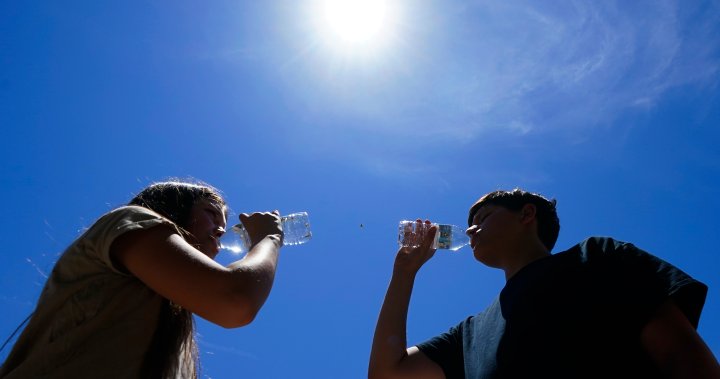
Critics say new U.S. heat safety rules for workers don’t go far enough
Global News
U.S. President Joe Biden has called for a new heat hazard alert system that will ensure both workers and employers are educated and protected while a federal standard is worked on.
The White House this week responded to pressure from lawmakers and advocates and introduced new protections to ensure outdoor workers are protected from extreme heat, but critics say the measures don’t go far enough.
U.S. President Joe Biden on Thursday directed the Department of Labor to issue a new heat hazard alert system that will ensure both workers and employers are educated about the hazards of working in high temperatures, and that protections are in place. The department will also step up workplace inspections and enforcement to ensure employers are protecting their workers.
“I want the American people to know help is here and we’re going to make it available to anyone who needs it,” Biden said while announcing the directive, pointing Americans to a new government website with resources for dealing with extreme heat.
The measures come as historically high temperatures continue to batter many parts of the country. More than 150 million U.S. residents, nearly half the country’s population, were under extreme heat alerts Friday.
Amd the sweltering heat, Democratic Rep. Greg Casar of Texas on Tuesday staged a “thirst strike” calling for the Biden administration to quickly adopt a federal standard for occupational heat safety rules in order to protect workers.
Biden’s directive is a stopgap measure meant to buy Americans time as the U.S. Occupational Safety and Health Administration (OSHA) works to create such a standard, which could make water and rest breaks for outdoor workers a legal requirement.
Currently, OSHA has a general duty clause that requires employers to provide a workplace “free from recognized hazards that are causing or are likely to cause death or serious physical harm to employees,” but no specific policies regarding heat.
Only three states in the U.S. — California, Washington and Minnesota — have specific statewide laws in place that ensure worker protections related to heat.
